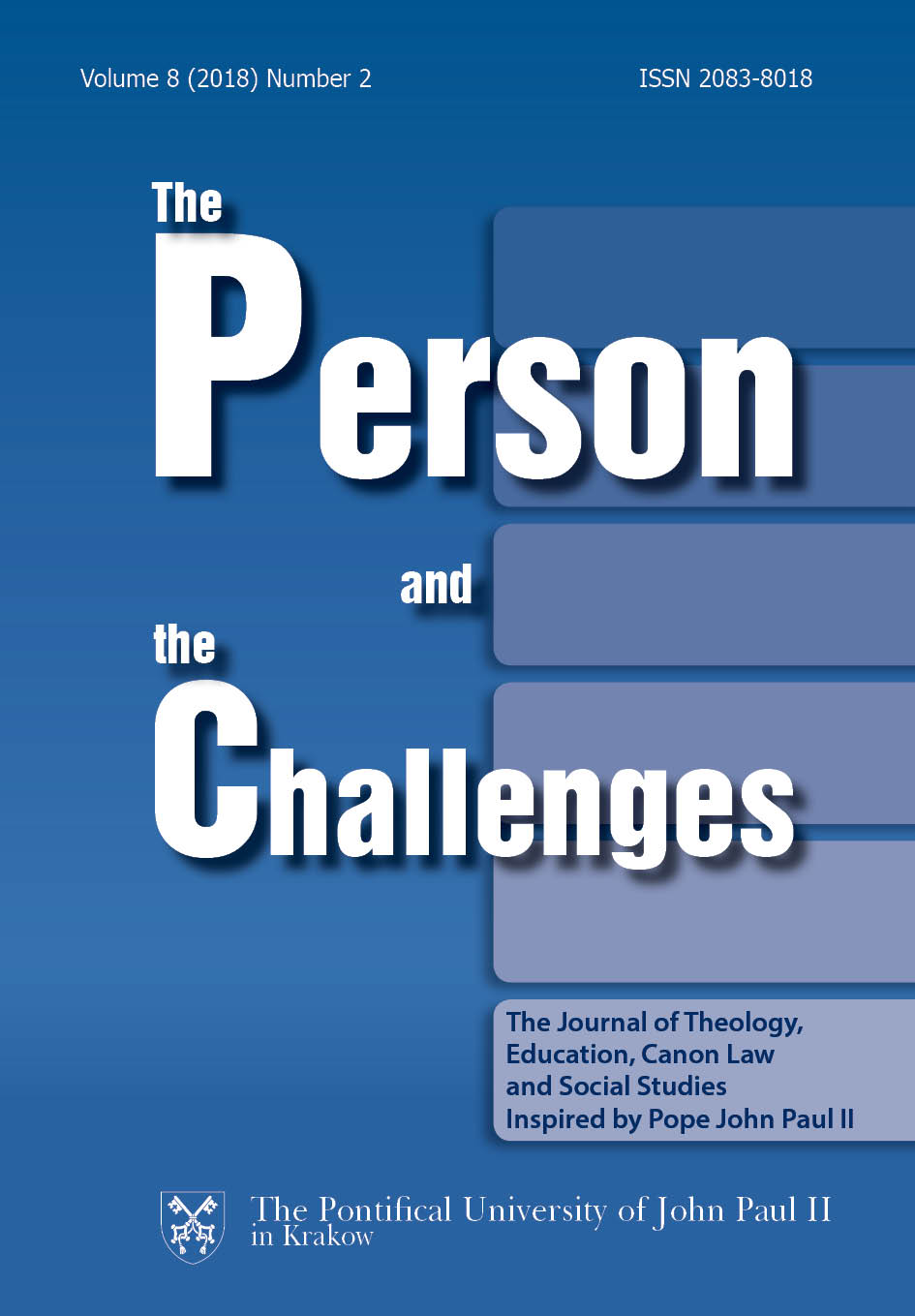The Threshold of Victory: Theodicy and Relief in the Theology of John Paul II
DOI:
https://doi.org/10.15633/pch.2561Słowa kluczowe:
Pope John Paul II, Christology, evil, suffering, soteriologyAbstrakt
The Twentieth Century provided the religious and irreligious alike with tremendous challenges in regards to belief. Evil and carnage were pervasive and the Church was in decline. In that cultural moment rose an interpreter of that challenge who theodicy was clear and efficient in answering the complex challenge of evil in the modern world. John Paul II, more than almost any other figure of the age, addressed the vexing issue of evil in the modern world. In the corpus of his writing mankind comes to know evil through an act of memory, remembering from where evil sprang, and what evil has done in man to separate him from his creator. And mankind comes to terms with identity of evil as seen and experienced through the act of suffering. Through processing memory, and examining identity, mankind can discover how Jesus Christ’s work on Calvary places us at the threshold of victory.
Bibliografia
Brand G., Ed. Catholicism: The Meaning of Catholicism: the organic unity of the
Christian Experience, New York 1962: George Braziller Pub.
Flannery A.G., Ed. Vatican Council II: More Post-Conciliar documents, New
York 1982: Costello Publishing.
Gascoigne B., Christianity: a History, New York 2003: Carroll and Graf.
Gonzalez J.L., The Story of Christianity: Vol 2 the Reformation to the Present Day,
San Francisco 1985: Harper Collins.
Honea Ch.H., A Readers Companion to Crossing the Threshold of Hope, Brewster 1996,
MA: Paraclete Press.
Oddie W., Ed. John Paul the Great: Maker of the Post-Conciliar Church, London 2003:
Catholic Truth Soc.
Pope John Paul II,. Memory and Identity: Conversations at the Dawn of the Millennium,
New York 2005: Rizzoli Pub.
Pope John Paul II,. Crossing the Threshold of Hope, New York 1995: Alfred Knopf.
Joseph Cardinal Ratzinger,. The Catechism of the Catholic Church, New York 1994: Catholic
Book Pub.
Articles
Richard Bauckham. Only the Suffering God Can help’. divine possibility in modern Theology, “Themelios” 9.3 (April 1984): 6-12.
Documents
Pope John Paul II,. „Salvifici Doloris” the Apostolic Encyclical of the Supreme Pontiff to
the Bishops, to the Priests, to the religious families and to the Faithful of the Catholic Church, February 11, 1984.
Pope John Paul II,. „Grace Spurs Humanity to Rise Above Evil.” The Holy Father’s
Homily on January 1, 1999 as he celebrated Mass for the Solemnity of Mary, Mother of God, Vatican, January 6, 1999.
Pope John Paul II,. „Conquer Evil by Growing in God’s Love.” The Holy Father meets
Roman Youth and answers questions on March 25, 1999, Published by the Vatican, April 14, 1999.
Pope John Paul II,. „The Problem of Evil: Evil in Free Human Person.” The Holy Father’s
Message to the Third Plenary Assembly of the Pontifical Academy of St. Thomas Aquinas, June 21, 2002.
Pope John Paul II,. „Fight Evil and Sin with Determination.” General Audience Address,
August 18, 1999. Vatican Published, August 25, 1999.
Pope John Paul II,. „Do Not Be Overcome with Evil but Overcome Evil with Good.”
Message for World Day of Peace, 2005. Vatican Published, December 8, 2004.
Pobrania
Opublikowane
Numer
Dział
Licencja
Prawa autorskie (c) 2018 Drew Griffin

Utwór dostępny jest na licencji Creative Commons Uznanie autorstwa 4.0 Międzynarodowe.
Autorzy publikujący w czasopiśmie udzielają jego wydawcy zgody o następującej treści:
- Autor zachowuje autorskie prawa majątkowe do utworu, a jednocześnie udziela wydawcy czasopisma zgody na jego pierwszą publikację w wersji drukowanej i wersji online na licencji Creative Commons Uznanie autorstwa 4.0 Międzynarodowe oraz zgody na wykonywanie opracowań, w tym przekładów.
- Autor ma możliwość udzielania zgody niewyłącznej na opublikowanie utworu w wersji, która ukazała się w czasopiśmie (np. zamieszczenia go w repozytorium instytucjonalnym lub opublikowania w książce), wraz z informacją o jego pierwszej publikacji w czasopiśmie.
- Autor może umieścić swój utwór online (np. w repozytorium instytucjonalnym lub na swojej stronie internetowej) jeszcze przed zgłoszeniem utworu do czasopisma.

